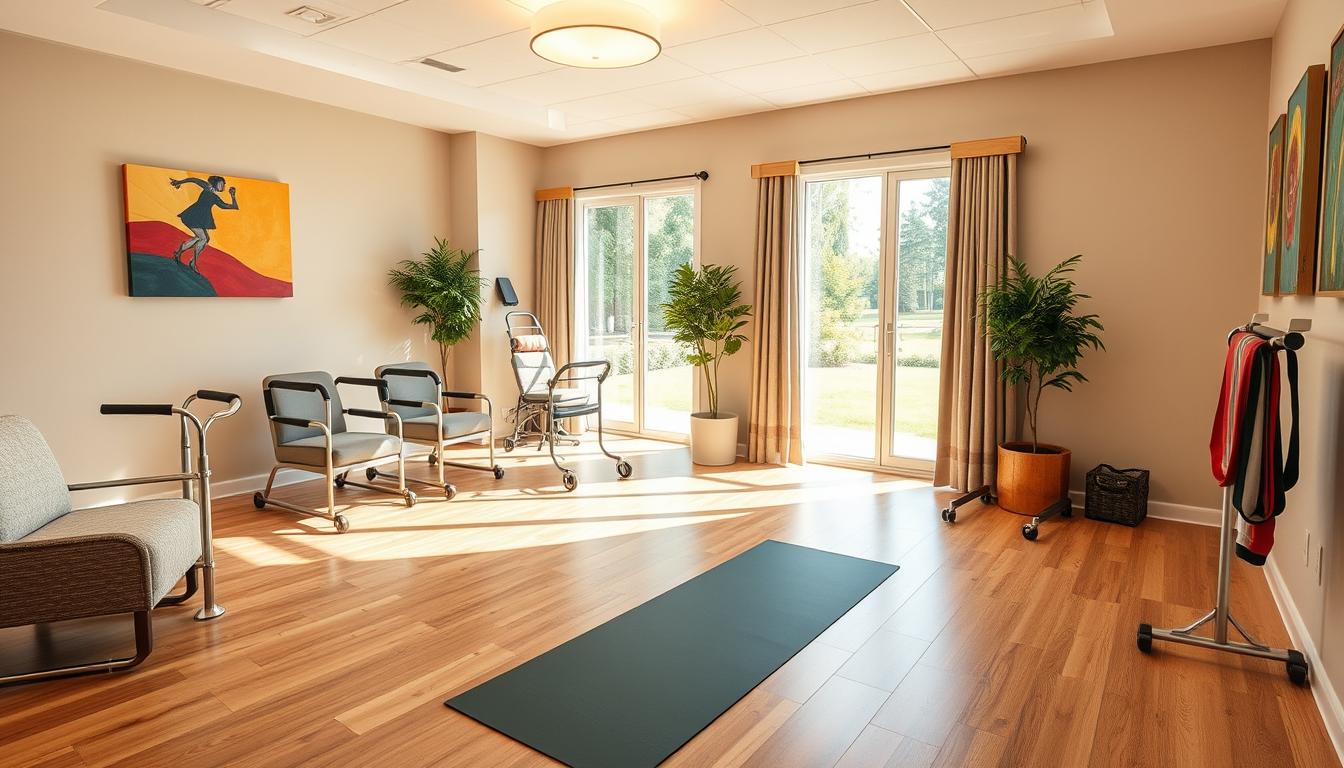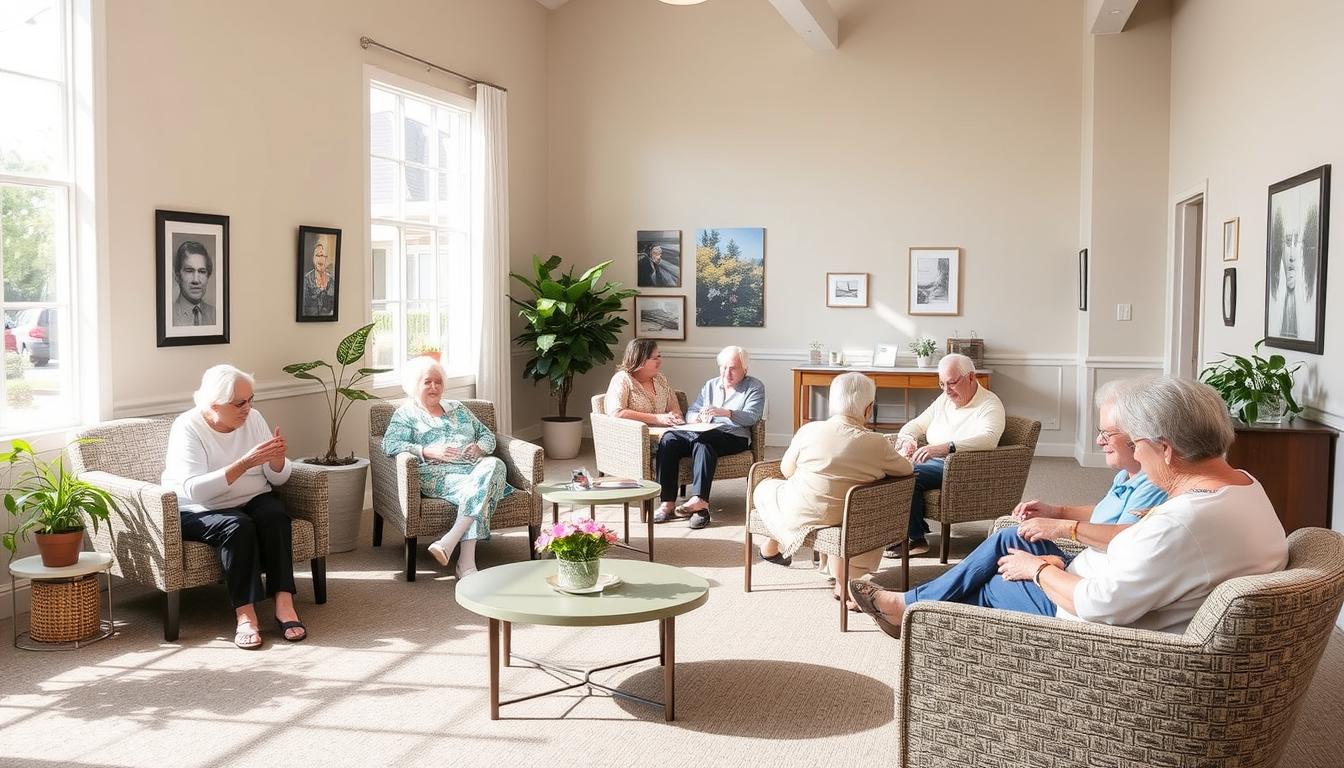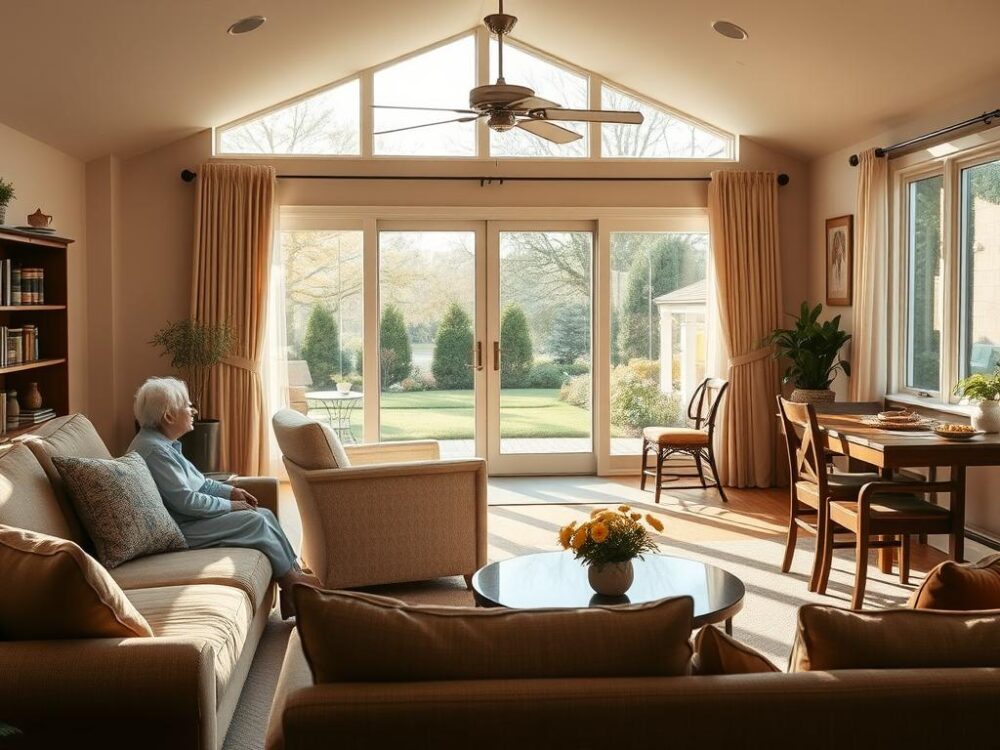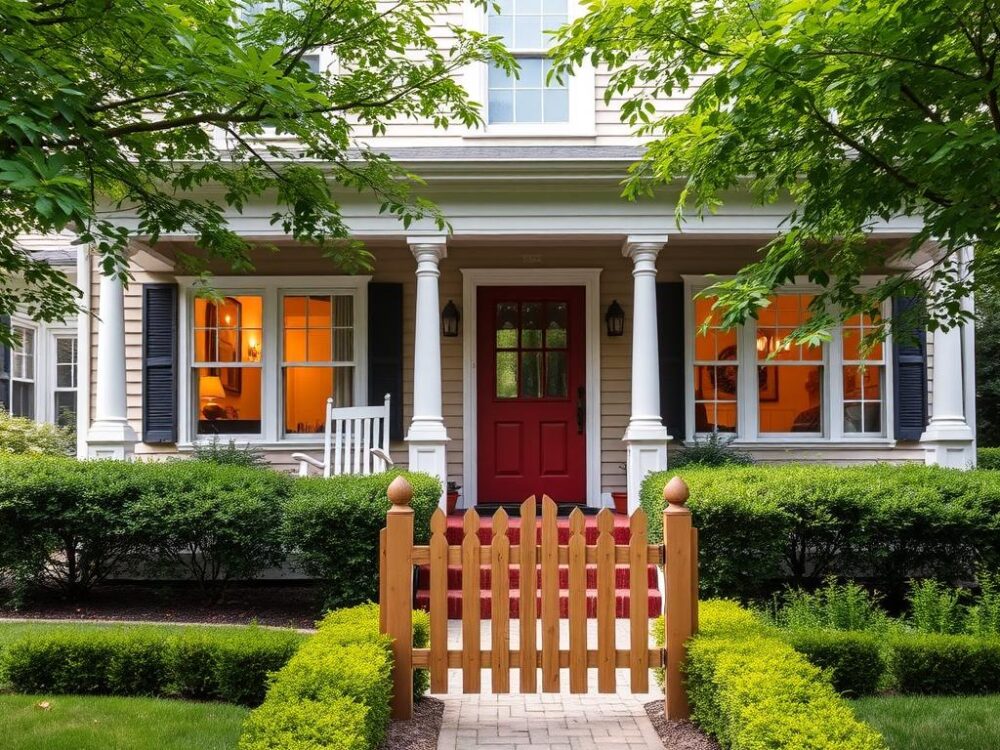
Physical Therapy for Seniors: Improving Mobility
October 2, 2024
Safe and Effective Exercises for Seniors
October 2, 2024Did you know adult day health care can cost from $25 to over $100 a day? These programs offer health, therapy, and social services for those with serious health issues. This shows the wide range of options for adult day health programs, vital in elderly care in the U.S.
Adult day health programs are a big help for seniors and their families. They provide care during the day, Monday to Friday, and sometimes into the evenings and weekends. They offer a safe place for older adults to make friends, participate in activities, and get health care.
These programs meet many needs, from social support to medical care. They offer meals, personal care, and rides. Some centres even have pet therapy or programs that bring together different generations, making life better for everyone.
Adult day health programs are a big help for those caring for others. They give caregivers a break, lower stress, and prevent burnout. There are also ways to get help with costs through Medicaid and the Older Americans Act.
Understanding Adult Day Health Programs
Adult day health programs give seniors the support they need during the day. They offer social activities and health services. This helps older adults who need help or feel lonely.
Definition and Purpose
Adult daycare facilities are safe and fun for seniors and give caregivers a break. They are open on weekdays, sometimes in the evenings, and on weekends.
They offer programs that last from two to five times a week and are four to eight hours long, depending on the seniors’ needs
Types of Adult Day Care Centers
There are two main kinds of licensed places: Adult Day Programs (ADP) and Adult Day Health Care (ADHC). Both have care plans, activities, meals, and transport. In California, ADHC centres focus on medical care for older adults and those with chronic illnesses.
Services Offered
Adult day health programs offer many services:
- Social activities and engagement
- Nutritious meals and dietary counselling
- Personal care assistance
- Health monitoring and medication management
- Transportation services
Some places have special care for Alzheimer’s or developmental disabilities. Alzheimer’s Day Care Resource Centers (ADCRC) help those with moderate to late-stage Alzheimer’s.
These programs help seniors stay well and give caregivers a break. They accept different payments, such as private pay, Medi-Cal, and Veterans Administration support, making them affordable for many families.
Benefits of Adult Day Health Programs
Adult day health programs are great for seniors and their caregivers. They provide a safe place for socializing, staying active, and getting support, which is very helpful for seniors and their families.
Advantages for Seniors
Seniors in these programs receive many benefits. They have a safe place to have fun, learn, and stay fit. They sleep better and feel more independent.
These services offer therapy, counselling, and personal care. They also have activities just for seniors.
Special support is available for those with memory problems. Programs offer care for Alzheimer’s and memory issues. They also help with medication and daily activities, keeping seniors feeling independent while they get the care they need.
Support for Caregivers
These programs also help caregivers. They give family members a break to work, relax, or care for themselves, which can lower stress and prevent burnout.
Over 44 million Americans care for family members without pay. Elderly spouses caring for others are more likely to die early than those who don’t care for anyone. So, support for caregivers is essential.
Community Engagement
Adult day programs also help seniors connect with others. They offer group activities and outings. This helps fight loneliness and keeps the mind sharp.
Being active can also make seniors healthier. It helps their heart and muscles and reduces the chance of falling.
But, few people use these services, and many centres don’t have waiting lists. This shows there’s a big chance to grow this helpful service. Programs like Community First Choice could help by adding more money for care at home and in the community.
Key Features of Adult Day Health Programs
Adult day health programs support seniors and their caregivers with various services. They offer therapeutic activities, health monitoring, and social activities in a safe, engaging place.
Social interaction is key in these programs. Seniors take part in group activities like puzzles and arts and crafts. These activities help keep them active, both in body and mind. They also lower the chance of falls, boost brain function, and help with sleep.
Health services are also a big part of these programs. They provide personal care, help with medications, and check vital signs. Some places even offer skilled nursing and doctor visits.
- Nutritious meals accommodating special diets
- Transportation services
- Pet therapy
- Intergenerational programs
Research shows that adult day health programs boost cognitive function, strength, and flexibility. They make life better and help with depression. They also cut down on the need for nursing home care.
Caregivers also gain a lot. These programs give them a break, lower stress, and allow them to spend quality time with loved ones. The Penn State University DaSH Study found that caregivers felt less stressed and healthier with adult day health services.
Adult Day Health Programs vs. Other Senior Care Options
When looking at elderly care services, it’s critical to see how adult-day health programs compare to other choices. These programs offer unique benefits, distinguishing them from in-home care, assisted living, and nursing homes.
Comparison with In-home Care
Senior day centres are not like in-home care. They provide a social setting that fights off loneliness. About one-fourth of adults over 65 feel lonely, making the social benefits of day programs significant. These places help seniors make friends through meals, group trips, and exercise.
Differences from Assisted Living Facilities
Unlike assisted living, adult day health programs focus on care during the day. They have a team of professionals who create special programs for each person’s needs. This way, seniors stay independent but get the help they need during the day.
Contrast with Nursing Homes
Adult-day health programs are cheaper and more flexible than nursing homes. They cost less than a semi-private room in a long-term care facility. These programs run daily, offering quality care without the high costs of 24/7 care.
Adult day health programs provide care, social time, and independence. They have staff-to-member ratios from 1:1 to 1:7, giving more personal attention than many long-term care places. This mix of services makes them an excellent choice for senior care.
Choosing the Right Adult Day Health Program
Finding the right adult daycare is critical for your loved one’s care. The ideal program offers dementia support and caregiver help. Let’s consider what questions to ask when picking a program.
Factors to Consider
Think about what your senior needs. Look for centres with skilled nursing, daily activity help, and case management. The Massachusetts Adult Day Services Association covers 105 out of 134 programs, ensuring quality care.
Questions for Providers
Ask about staff skills and health conditions they manage. Check on activities and hours. Some places, like Dia Feliz Adult Day Health Center in Framingham, are open Monday to Saturday. Remember to ask about costs. For example, Daybreak in Hudson, Marlborough, and Northborough charges a $15 per day donation.
Evaluating Facility Quality
Check out several centres to see what they offer. Watch how staff treat the participants. Many programs support different languages, like Living Well Adult Day Health in West Boylston, which speaks Spanish, Albanian, and Russian. MADSA makes sure its members are licensed and follow strict ethics.
The right adult day health program keeps seniors active and provides critical caregiver help. Take your time to find the best fit for your loved one’s needs.
Financing Adult Day Health Programs
Knowing the costs and payment options for adult day health programs is essential. The average price is $60 per day, much lower than the $152 daily for home health care.
Medicaid covers adult day care in all 50 states for those needing full-time nursing home care. The Department of Veterans Affairs offers unique programs for veterans. Some centres offer free services or charges on a sliding scale.
Long-term care insurance may cover part of the cost of adult day care, but it depends on the centre and daily limits. Some employee benefits include discounts at care centres or dependent care spending accounts for pre-tax money.
Veterans can get Adult Day Health Care if they’re eligible for community care and meet specific health criteria. These services can be half-day or full-day and are offered several times weekly. They provide a break for caregivers and deliver structured activities for seniors.
Look into state-funded programs in 39 states to help prevent or delay nursing home care. These programs are great for elderly people, especially those with Alzheimer’s or dementia. Make sure to check out all funding options and talk about payment with your chosen facility.
The Role of Caregivers in Adult Day Health Programs
Caregivers are crucial in adult day health programs. They offer essential support to seniors and their families. In the U.S., over 7,500 adult daycare centres provide various services for different needs.
Communication with Staff
Good communication between caregivers and staff is essential. It ensures the senior’s well-being is tracked and care plans are adjusted. Most centres have nurses, and nearly half have social workers, providing professional care and communication.
Participating in Care Planning
Caregivers add valuable insights to care planning. They know the senior’s daily routines, likes, and health history. This helps create care plans that fit the senior’s life. Around 15% of people over 50 care for a family member or friend.
Utilizing Respite Opportunities
Adult day programs give caregivers a much-needed break. This break lets them work, rest, or take care of themselves. It’s vital, as up to 75% of family caregivers experience mental health issues as a result of caregiving. Respite care programs prevent burnout, helping both caregivers and seniors.
Adult daycare costs vary from $25 to over $100 daily. Yet, the value of caregiver help can’t be measured. Caregivers give about $25 billion of labour to healthcare annually, showing their prominent role.
Conclusion
Adult day health programs are vital in caring for the elderly and their caregivers. They’ve shown strength during the COVID-19 pandemic, adapting and keeping up essential services.
These programs help not just the seniors who go there. Most attendees are 72, and 30% have mild memory loss. They make a big difference in the health and happiness of 85% of the seniors. And they help 78% of them feel less lonely.
They also help caregivers a lot. With 92% of caregivers saying it’s a positive experience, these programs give families a break. This support can delay the need for more care and improve families’ lives.
As more people age, adult-day health programs will change to meet new needs. These programs offer health checks, social activities, and a break for caregivers, and they are vital to caring for the elderly and their families.




